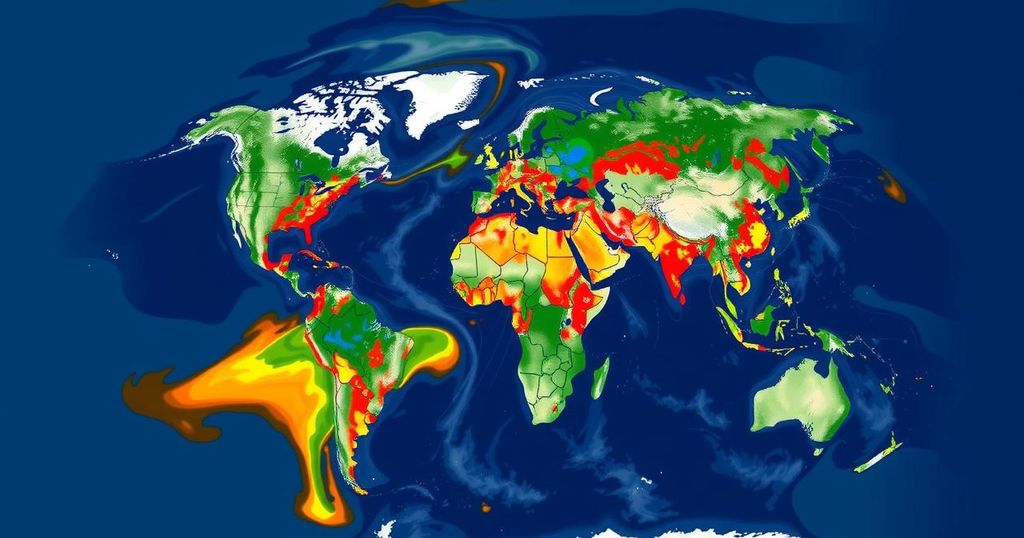Global Weather Hazards Summary: November 21-27, 2024 Analysis

ENSO-neutral conditions persisted as heavy rainfalls affected Africa, especially in Kenya, Somalia, and Mozambique. Tropical Storm Sara caused extreme rainfall in Central America, with subsequent flooding in Colombia. The report highlights areas experiencing both flooding and drought, emphasizing significant climatic variability in the region. Abnormally hot conditions are expected in northwestern Africa and Madagascar.
The Global Weather Hazards Summary for November 21-27, 2024, indicates continued ENSO-neutral conditions across the globe. Heavy rains have affected various regions, particularly in Africa, including Kenya, southern Somalia, and Mozambique, while Central America experienced severe rainfall due to Tropical Storm Sara. These climatic events have led to significant flooding in Colombia and other areas.
In Africa, the rainfall has resulted in widespread flooding particularly in northeastern Ethiopia and various countries including Guinea-Bissau, Guinea, and northern Sierra Leone. Although Nigeria has seen flooding, improvements have been noted. Conversely, some regions, like Ghana and parts of Nigeria, are suffering from drought due to insufficient rainfall earlier in the year. Although eastern Kenya has seen some improvement from recent rains, central Somalia remains drought-stricken. Furthermore, above-average temperatures are predicted in northwestern Africa and Madagascar, while localized heavy rains may lead to flash floods in Angola. The Ituri province of the Democratic Republic of the Congo has also faced challenges due to flooding following heavy rains since early November.
The ENSO-neutral phase typically implies that there are no significant weather anomalies expected due to El Niño or La Niña influences. However, even in this phase, atmospheric and oceanic conditions can lead to substantial regional weather events, as seen in this report. The interplay of geographical factors and seasonal climate shifts has resulted in both localized flooding and drought across the African continent, which significantly affects agriculture and water resources. Understanding the broader climate context allows for better preparedness and response to these hazards.
In conclusion, the period of November 21-27, 2024, saw significant weather anomalies, particularly in Africa and parts of Central America, stemming from sustained heavy rainfall and ensuing floods. While some areas showed improvements, others faced persistent drought conditions resulting from earlier rainfall deficits. The forecast of abnormal temperatures indicates the continuing impacts of global climatic variability. Comprehensive monitoring and responsive measures will be essential in mitigating the impacts of these weather-related hazards.
Original Source: reliefweb.int






